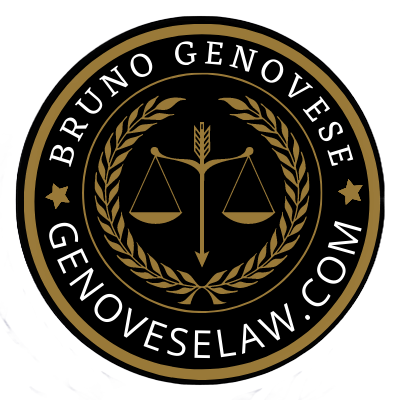Introduction
You dreamed of sipping wine on the terrace of your charming French leaseback property while the rent checks rolled in effortlessly. Instead, you’re chasing elusive payments, paying for repairs you never authorized, and wondering why your “guaranteed” returns feel more like a Brie gone bad. If your leaseback investment smells less like a French delicacy and more like a financial fondue disaster, it might be time to reassess your options.
This article dives into the sticky realities of leaseback investments, helping you identify when to hold on, when to renegotiate, and when to cut your losses faster than a Parisian cuts their baguette.
1. Signs Your Leaseback Is Aging Like Spoiled Chèvre
Not all leasebacks are created equal. Some age like a fine Roquefort, while others quickly turn into a smelly liability. Here are the key indicators that your investment might be heading toward the trash heap:
- Vanishing Rents: Your “guaranteed” rental income is now a sporadic trickle, and the management company has more excuses than a politician at a press conference.
- Soaring Charges de Copropriété: Maintenance fees that once seemed reasonable are now growing faster than the line at a Parisian bakery on Bastille Day.
- Uncooperative Management Companies: Are they dodging your calls, ignoring your emails, or giving you explanations that feel like they were written by AI? This is a red flag you can’t ignore.
- Unrealistic Buyout Offers: If the management company offers to buy your property for a price that wouldn’t cover your monthly cheese budget, it’s time to reevaluate.
Pro Tip: If you’re facing any of these issues, don’t let the fear of sunk costs keep you clinging to a bad investment. Recognizing a failing situation early is key to minimizing losses.
2. To Hold or to Fold: Assessing Your Options
Sometimes it’s better to hold on to your leaseback, while other situations scream, “RUN!” Here’s how to assess the two scenarios:
When to Hold On
- You Have Strong Tenants: If the management company is reliable and your rental income is steady, you might still have a wheel of potential.
- Tourism Is Rebounding: Is your leaseback in a high-demand area like the French Riviera or a ski resort in the Alps? If so, the market might favor you in the near future.
- You Can Afford the Risks: If the costs don’t significantly hurt your finances, it might be worth waiting for a potential market recovery.
When to Fold
- Negative Cash Flow: If you’re shelling out more than you’re earning every month, it’s time to stop funding someone else’s holiday.
- Deteriorating Property Value: If resale prices in the area are plummeting faster than unbaked soufflés, it’s a clear sign to consider exiting.
- Legal Nightmares: A combative management company, unclear contracts, or ongoing disputes are indicators that the situation might not improve.
Pro Tip: Conduct a cost-benefit analysis with the help of a lawyer who specializes in French leasebacks. Sometimes, the numbers make the decision for you.
3. Breaking Free: Exit Strategies That Work
If you’ve decided to part ways with your leaseback, you need a well-planned exit strategy. Here are your main options:
Renegotiate Your Contract
Negotiating with the management company can sometimes yield better terms or a buyout offer that doesn’t feel like daylight robbery. Be prepared to:
- Highlight contractual breaches.
- Insist on transparency in maintenance costs.
- Suggest mutually beneficial solutions, like reduced fees or higher rent shares.
Sell Your Leaseback Property
Reselling a leaseback property can feel like trying to auction off yesterday’s baguette, but it’s possible with the right approach:
- With the Lease: Target investors who are looking for passive income, even if it’s not guaranteed.
- Without the Lease: This might involve legal action to terminate the lease, but the property could appeal to buyers who want to live in or use it personally.
Terminate the Lease
If the management company has breached the contract, you may have grounds to terminate the lease legally. Common reasons include:
- Non-payment of rent.
- Failure to maintain the property.
- Excessive fees that are not justified.
Pro Tip: Involving a French lawyer who knows the ins and outs of leaseback law is essential for navigating this process smoothly.
4. Lessons Learned: How to Avoid Future Leaseback Pitfalls
Hindsight is 20/20, and if you’re escaping a bad leaseback deal, it’s the perfect time to reflect on what went wrong. Here’s how to make better investment decisions in the future:
- Research the Developer and Management Company: Check their reputation, track record, and financial stability before signing anything.
- Understand the Fine Print: Know exactly what your obligations are regarding maintenance costs, rent guarantees, and lease terms.
- Seek Professional Advice: Before diving into any real estate investment, consult with a lawyer and a financial advisor.
- Consider Alternative Investments: Sometimes, that money might be better spent on stocks, bonds, or even a holiday home you can enjoy yourself.
5. A Smarter Way Forward: Why Legal Help Matters
The French leaseback system is riddled with complexities, and escaping a bad deal often feels like trying to decode the recipe for a perfect soufflé. A French lawyer with expertise in leasebacks can be your best ally, offering:
- Contract Review: Identifying hidden pitfalls or breaches by the management company.
- Exit Negotiation Support: Ensuring you get a fair deal when terminating or selling the lease.
- Tax and Legal Advice: Helping you navigate French property taxes and legal requirements during the sale.
Pro Tip: Don’t wait for your leaseback situation to go from bad to worse. Seeking legal advice early can save you time, stress, and money.
Conclusion
French leasebacks can be a delightful investment—when they work. But when they don’t, they can quickly become a burden that drains your finances and tests your patience. Knowing when to cut your losses, renegotiate, or walk away is crucial to protecting your financial health.
So, is your leaseback a cheddar (steady, reliable, and strong) or a chèvre (fragile, crumbling, and smelly)? The answer lies in your willingness to assess the situation honestly and take decisive action. And remember: with the right advice and a clear plan, you can turn even the stinkiest situation into a fresh start.
Bon courage—and here’s to making smarter, sharper investments in the future! 🧀





